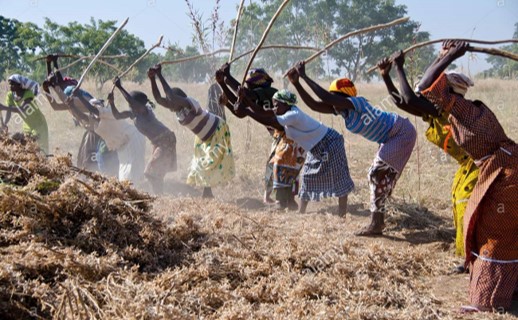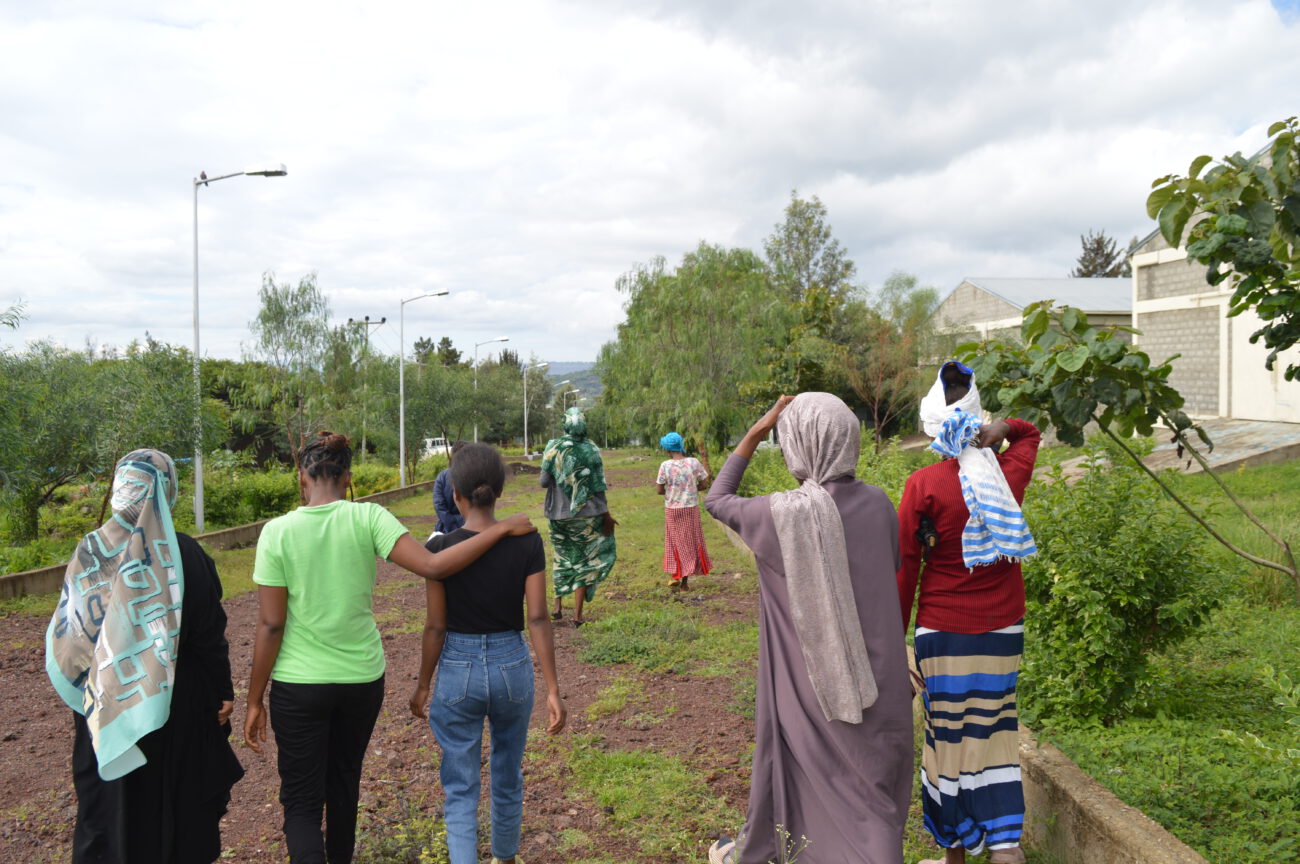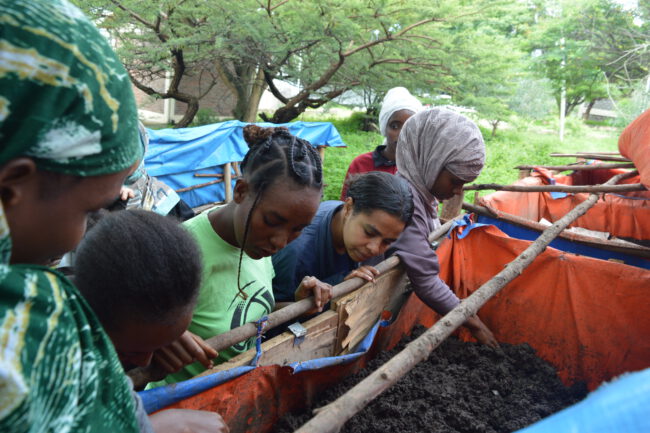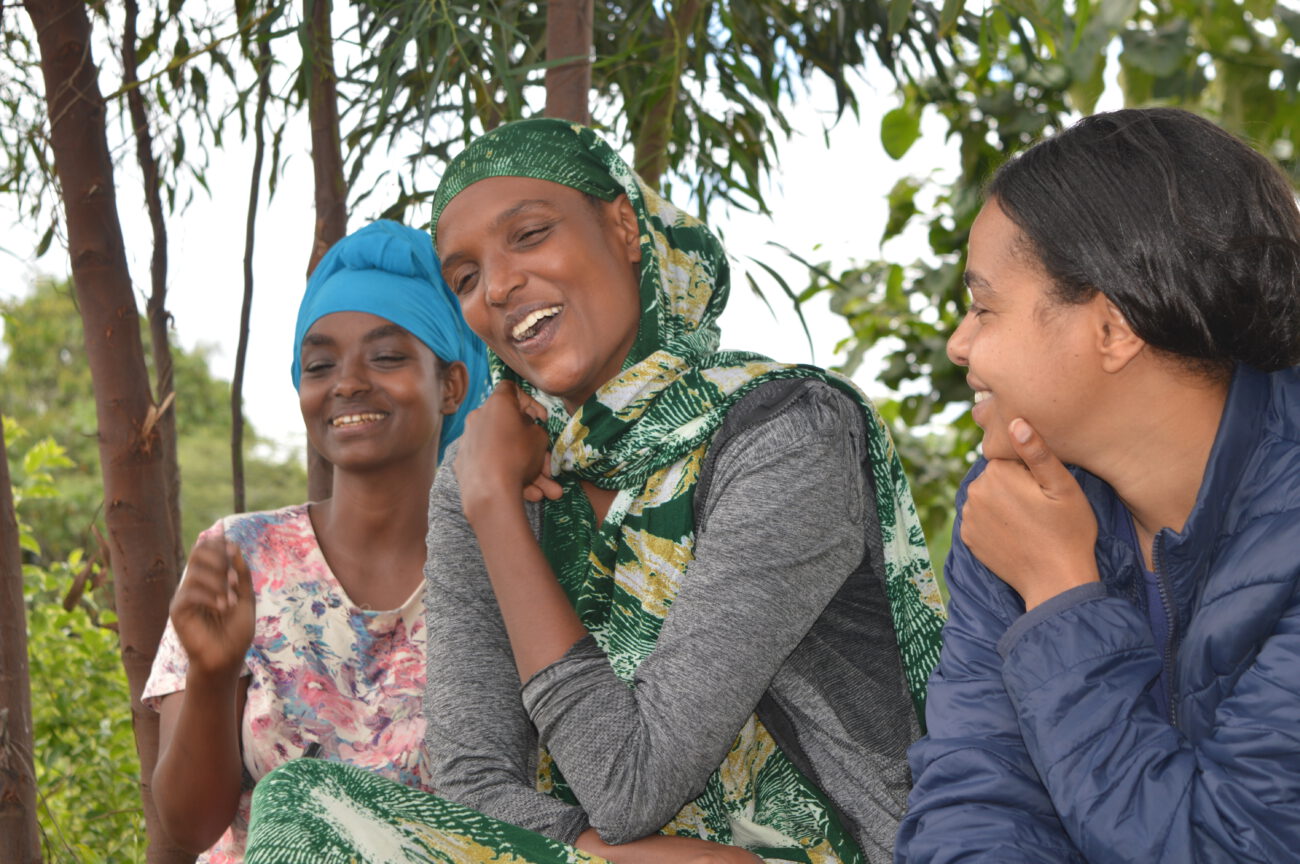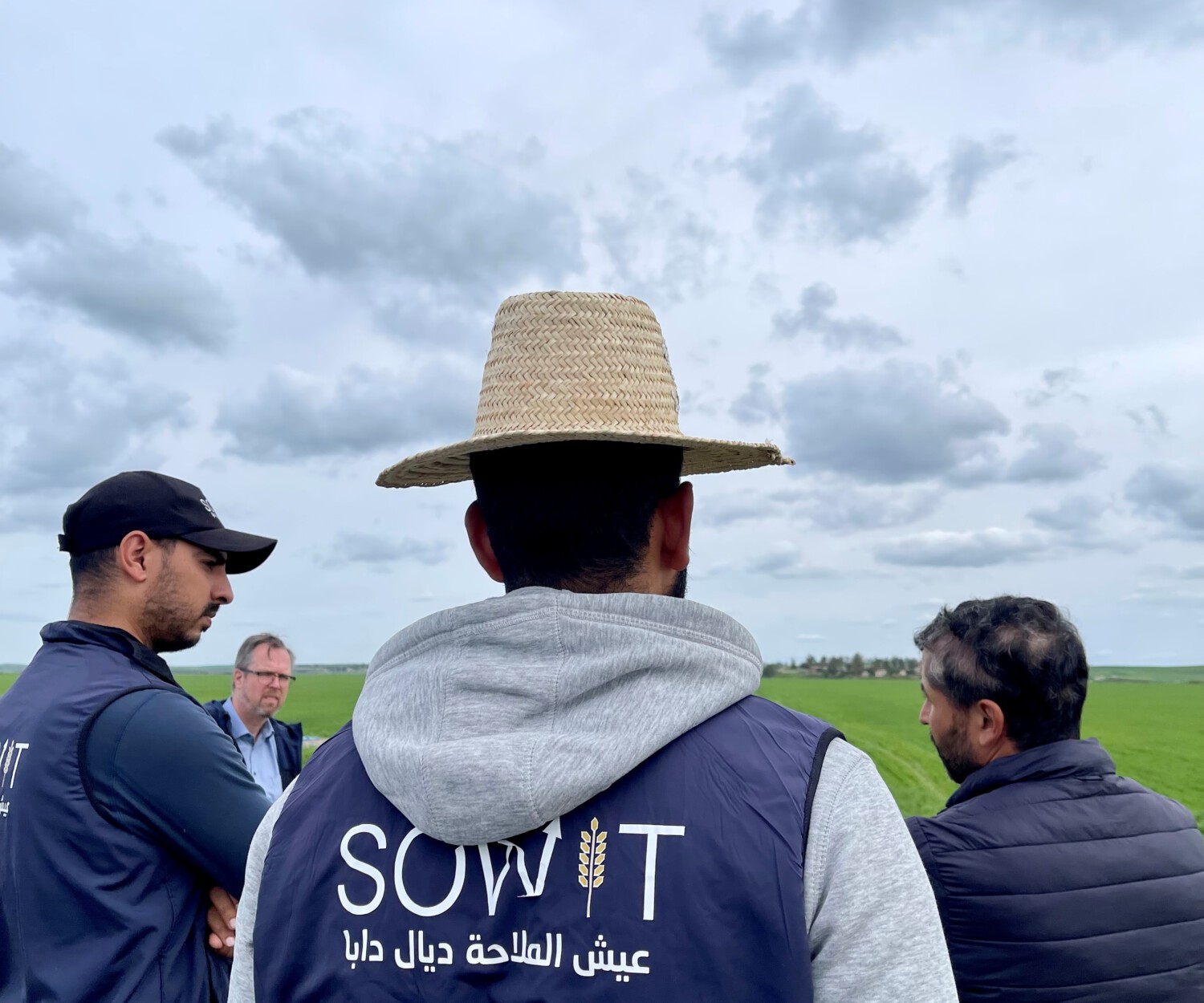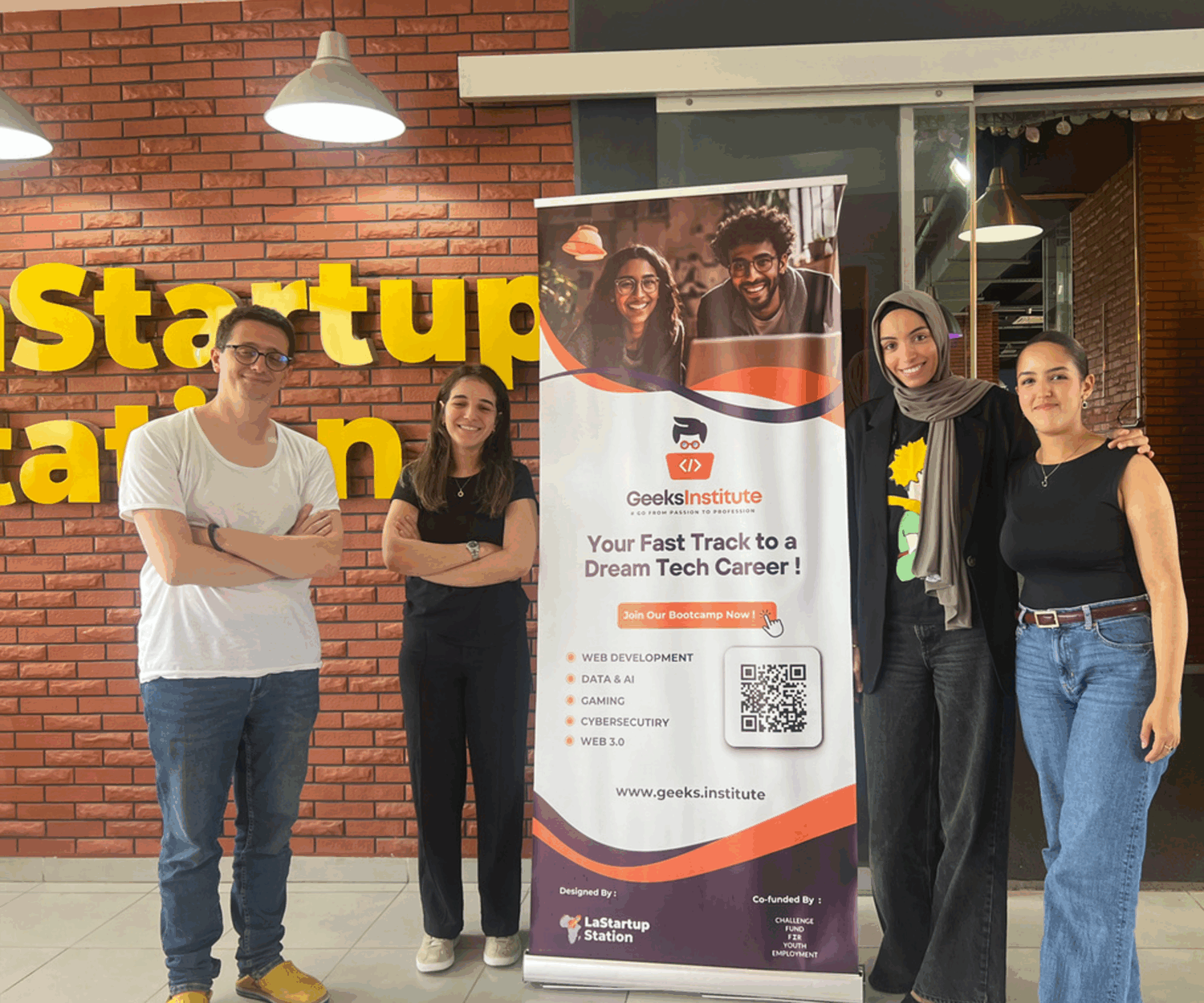In the heart of Ethiopia, CAMS Engineering is breaking new grounds in gender inclusion with the technical and financial support of the Challenge Fund for Youth Employment (CFYE). Based in the Mareko District, an area that is predominantly known for their agrarian economy, CAMS Engineering is at the forefront of agricultural mechanisation. Founded with the mission to modernise agricultural practices, CAMS focuses on addressing the country’s agricultural challenges through innovation and technology. They are renowned for their expertise in mechanising critical processes like grain threshing, traditionally labour-intensive and time-consuming. The company has a clear focus on sustainability, ensuring that their technologies are environmentally friendly and economically viable for farmers of all scales.
After identifying and recognising elements of inequality between their male and female farmers, in particular connected to unequal participation and limited access to resources, CAMS Engineering and the CFYE have been working together to identify and adopt a transformative approach to address gender-related constraints and allowing young women to expand their opportunities. The experience of young women working in mechanised grain threshing includes different obstacles that hinder their equal participation. They often have to leave their villages and risk being harassed, and due to gender stereotypes on women’s roles as primary caretakers of the household, the time spent working and commuting is not perceived to be compatible with their duties. CAMS’ Engineering efforts in maintaining a flexible mindset and creating new roles for women within the company not only helped in addressing these issues, but also demonstrated the business advantages of gender diversity. As young women farmers have consistently proven their reliability and excellence in the operations, and are now recognised as invaluable assets, their inclusion positively impacts the company’s performance beyond the realm of social responsibility. This case study aims to shed light on CAMS Engineering’s innovative strategies that are paving the way for more inclusive and efficient agriculture practices in Ethiopia.
Value Chain Integration to solve gender-based challenges in mechanisation
Before the mechanisation shift, threshing was done manually and mostly by women. Once mechanised labour was introduced to be women-friendly and to allow women to shift towards more value-added activities, such as operating machinery. However, these expectations were not met, as different infrastructural, social, and security issues posed an obstacle to women’s full inclusion. In the case of the district of Mareko, the shift from manual to mechanised labour actually led to the exclusion of women from threshing, mainly due to the labour-intensive nature of the work, prohibitive travel requirements to offer thresher service, and a lack of adequate roads access, which also exposed them to safety risks.
As part of their business model CAMS has developed a Value Chain Integration, demonstrating a flexible approach to multi-layered challenges. They expanded their capabilities into three new areas, allowing workers to be involved in grain aggregation, poultry feed production, and bio-fertilizer production. CAMS also scaled their training to cover organic fertilizer and poultry feed production, which not only diversified their production, but also had a positive impact on the opportunities available for youth and women in the agricultural value chain. These strategic improvements have enhanced job sustainability and capitalise on new market opportunities, while overcoming one of the typical challenges in agriculture: seasonality.
What concrete actions followed CAMS flexible approach?
- New roles for women were created: young women are now able take on roles as cashiers, data collectors, and gardeners. CAMS identified a business model for 115 women in vegetable and fertilizers gardening. By growing and selling vegetables, women can generate income to support themselves and their families.
- Beneficial Partnerships were established: CAMS partnered with Bedebo, a digital platform for agricultural services and market linkage that has imported equipment like compost turners, poultry feed processors, and choppers, making it possible to move forward with the initiative and ensure that women could access jobs in gardening.
We have a major commitment to gender inclusion at CAMS that goes beyond social responsibility. We see women as important actors from a business point of view; they are reliable workers and have demonstrated operational excellence.
Abel Girma CAMS’s co-founder
Nevertheless, while implementing new roles, it was clear that gender norms both at household and community level kept hindering women to access job opportunities in agribusiness. That is when the CFYE stepped in to offer gender technical assistance (TA), led by a local gender expert. The objective was to support CAMS to develop and strengthen their gender processes, analysis, and strategy development. The gender expert started by conducting a ‘Gender Action Learning Systems (GALS) Training’ with 40 women and their husbands. During this training, the women and men were guided to map out the current gender roles, responsibilities, and imbalances and visualise how women working in agriculture could improve the livelihoods of their family and community.
Mr. Belachew was feeling discomfort about Alemitus plan to join the vegetable gardening business to be created by CAMS Engineering and was hesitant to allow her to start the job. However, after the training he promised his wife to support her and manage the household activities while she works in the agribusiness.
Beredu Tessema – Gender Expert
In addition to the positive impact that Value Chain Integration had on enhancing job opportunities for women, the gender technical assistance contributed to the active involvement of community in conversations about gender inclusion in agriculture. The TA provided supported women in their new roles in different ways:
- It provided young farmers (both women and men) in the household with practical knowledge and skills on vegetable gardening and women economic empowerment.
- It helped “getting the discussion started” and raised awareness about the importance of balancing household duties to improve gender equality within the family, the community, and in agribusiness.
- It empowered the selected women to be active participants in vegetable gardening, and to be involved in decision-making processes related to the vegetable production and sales.
Both men and women youth Farmers were guided [to develop] a shared vision for gender equality and women’s empowerment. [That involved] imagining and articulating a future where gender norms are transformed, and women have equal access to resources and opportunities.’
Beredu Tessema – Gender Expert
From Women’s perspective: the progressive impact of Value Chain Integration as an inclusive approach
After a couple of months, CFYE decided to get a sense of young women’s perception of the gender approach introduced through our technical assistance. From the discussions we had with the beneficiaries of the interventions, we discovered that by adopting these gender approaches, CAMS’ provided them with a valuable opportunity to growth both professionally and as contributing members of their community.
The women shared their enthusiasm for the training they received on manufacturing poultry feed, an initiative that is yet to begin but has the potential of fostering new opportunities and expand their duties. The technical trainings and the Gender Action Learning System (GALS) training have increased the community awareness of the project goals, fostering a stronger sense of involvement and motivation among the participants.
The discussion was also an occasion for the young beneficiaries to share some of the challenges they face. For example, young women working as cashiers and data collectors often cover duties that require them to work late in the night. This poses a significant safety issue, as the low availability of means of transport at late hours force them to walk home, something that not only put them in danger, but that is also not widely accepted by the community.
They also mentioned the challenge of seasonality in the region’s agricultural sector, pointing out that many jobs are tied to specific times of the year. However, they found composting to be a task that could be carried out continuously, even during the off-season, providing them with consistent work. However, the women involved in the composting project also noted that, as a new initiative, the financial returns have not yet been substantial. While they remain hopeful about the future, the current revenues are still modest. Despite these challenges, the women remain committed to their new work roles and optimistic about the impact these opportunities will have on their lives and the broader community.
Lessons learned:
- Mechanisation was initially intended to reduce the physical intensity of work for women. Inadvertently, it led to women’s disengagement due to its labour-intensive nature, the need for extensive travel, poor road conditions, and potential harassment.
- When developing more inclusive practices, unintended consequences may arise. It is crucial to adopt a flexible approach that allows adjustments and creative alternative solutions if initial expected outcomes are not achieved.
- This approach also requires flexibility on the funders side. Project management and Monitoring and Evaluation systems need to allow for an adaptive approach.
- The adoption of Value Chain Integration as a pathway to achieve more inclusive agriculture practices for women, demonstrated that CAMS’ openness to adaptation and the community’s role in addressing gender challenges are key factors for its successful implementation.
More studies
Interested in more?
Vacancy
Consultancy – Technical Assistant Expert
 Sade Aalto-Setala
Sade Aalto-Setala
 December 3, 2025
December 3, 2025
